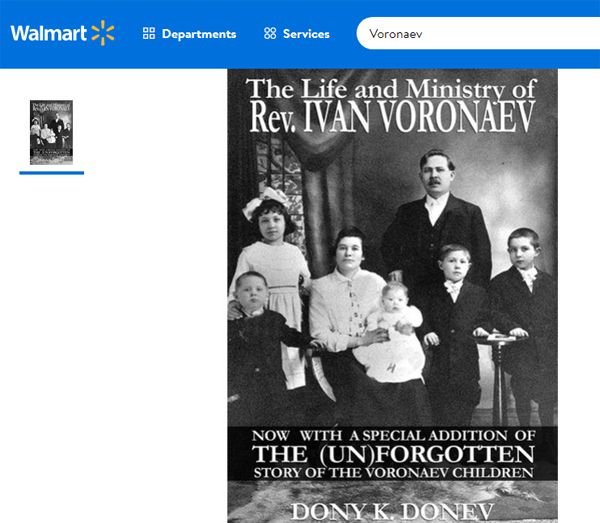160,000 Pentecostals in Bulgaria Reported by the NEW Encyclopedia of Global Pentecostalism
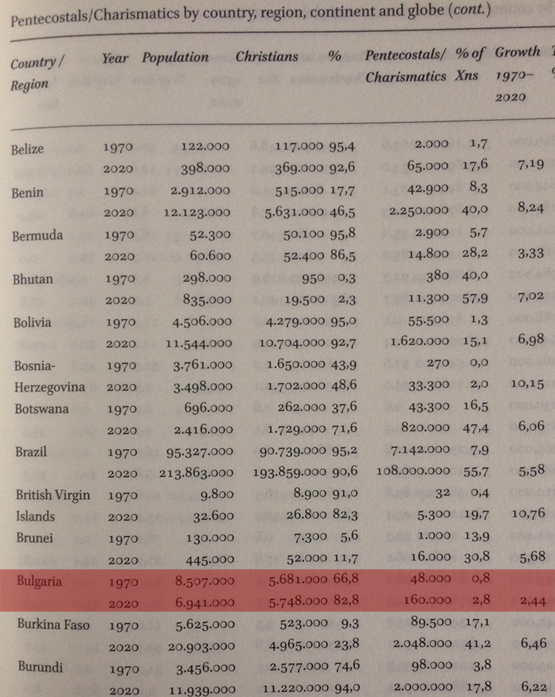
How many people die in the Great Tribulation?
We start with roughly 8 billion population
Revelation 6:8 KJV “And I looked, and behold a pale horse. And power was given unto them over the fourth part of the earth, to kill with sword, and with hunger, and with death, and with the beasts of the earth.”
8 bil : 4 = 2 billion dead
6 billion left alive after Rev. 6
Rev. 9:15-18 another 1/3 of the world’s population will be dead
6 bil : 3 = 2 billion dead
4 billion left alive after Rev. 9
4 bil out of the original 8 bil is 50%
The odds that anyone would survive the Great Tribulation are 50:50 or even less…
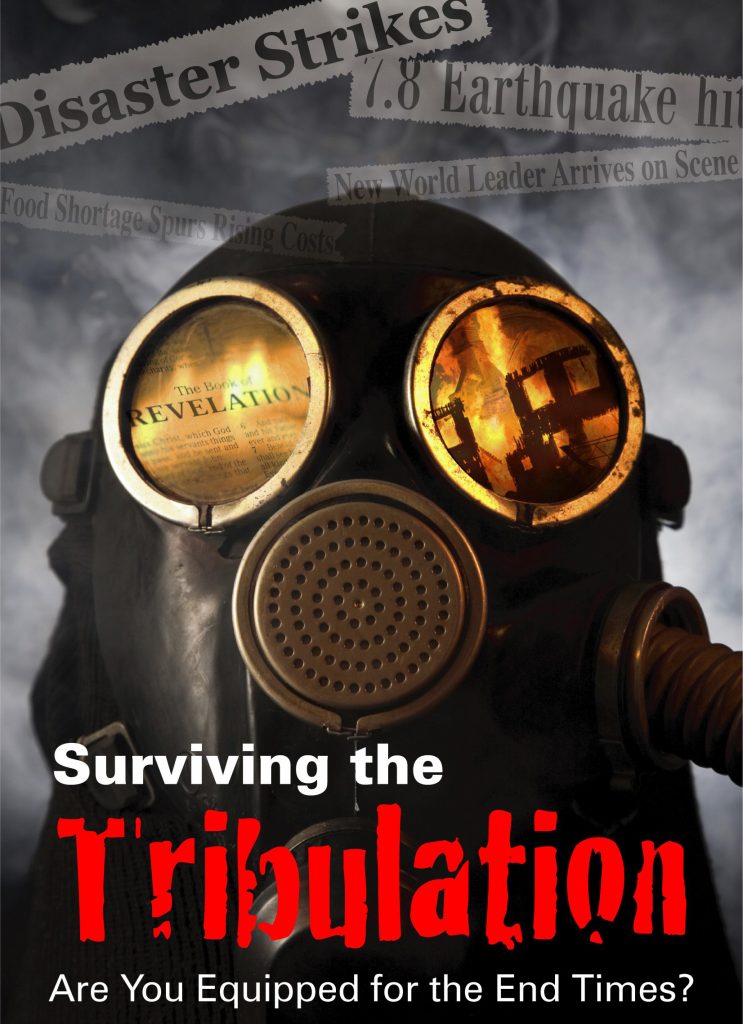
Last Days’ Prophecy Unfolding
“Israel has to be reborn as the country. Check. Jews have to be coming back en masse and resettling here. Check. Jews have to rebuild the ancient ruins. Check. They have to make modern Israel prosperous. Check. And they have to be living securely in the land,”
04:00 Invasion toward ISRAEL (Rev. 12)
06:00 The mark (Rev. 13)
06:27 10 kings (Rev. 17:12)
06:44 Ross of Magago (Ezek. 38 & 39)
07:35 War (Rev. 19:19)
08:33 Do not damage the oil and the wine (Rev. 6:6)
09:00 China (Rev.16:12–16)
14:25 World War 3 (Rev. 19:19)
14:45 Chemical weapons (Rev. 9)
15:00 to the end – America NOT in Biblical prophecy
https://www.jpost.com/christianworld/article-702069
Ivan Voronaev’s Book in WalMart for Palm Sunday
FOLLOW THE LINK to purchase today:
Maintaining Internal Motivation in Midst of Pandemic
by Kathryn N. Donev, LPC/MSHP, NCC
The following are some highlights to encourage you this new year in midst of the uncertainty of a global pandemic with 1) Product Placement, 2) Cognitive Dissonance, and 3) Mass Formation Psychosis surrounding us daily.
Motivation has been explored from the beginning of time. Questions such as “What is motivation?” and “How can one become motivated?” continue to be discussed and analyzed. Many theories of how to provoke individuals exist. Some authorities feel that the key is the use of a reward system in which an individual is enticed to act by an external motivator. Conversely, other experts believe in the concept of “self-talk” where one simply talks positively to become inspired. Scholars continue to debate the sources of motivation and it has been described in a variety of ways. From a Christian perspective, motivation can be defined as occurring when an individual is convinced of the appropriateness and urgency of goals, to the degree that he or she is driven not from without, but from within to act and continues to act in order to reach these goals, despite what others do or think.
In order to understand motivation, one must be aware of its sources. These include those that arise from within oneself and those that derive from external factors. One of the main sources of external motivation is financial incentives. Other external motivators include social pressure as well as magnetic personalities; those that have the ability to attract individuals who may fail to consider the implications of becoming enticed. External motivators inspire individuals to act first and think later. In such cases, one is solely moved by outside incentive. Alternatively, individuals may experience genuine motivation, which comes from within oneself.
Before addressing how to become genuinely motivated, a further distinction must be made between “internal” and “external” motivation. Internal motivation is what the author considers to be true motivation due to it being internally generated and not externally stimulated. Excitement occurs based on personal interest or passion. It is grounded on a decision to identify with that task, resulting in belongingness and not because of any external incentive.
On the other hand, the author views external motivation as an artificial stimulus. It is fake in the sense that it produces emotional stimulation, which may lead to excitement without creating an awareness of the true source of such feelings. In other words, support or positive reinforcement from others may create a feeling towards action, which may dissipate once the peripheral source is removed. External motivation is based on outside or perhaps selfish incentives. One may ask the question, “What is in it for me?” External motivation causes one to become consumed with personal rewards, rather than focusing on the goal at hand. Nevertheless, it is important to note that in the early stages of motivation, people may need emotional encouragement from others in order to promote action. However, individuals are not truly motivated as defined above, unless their actions are produced by internal motives regardless of the presence of support from others.
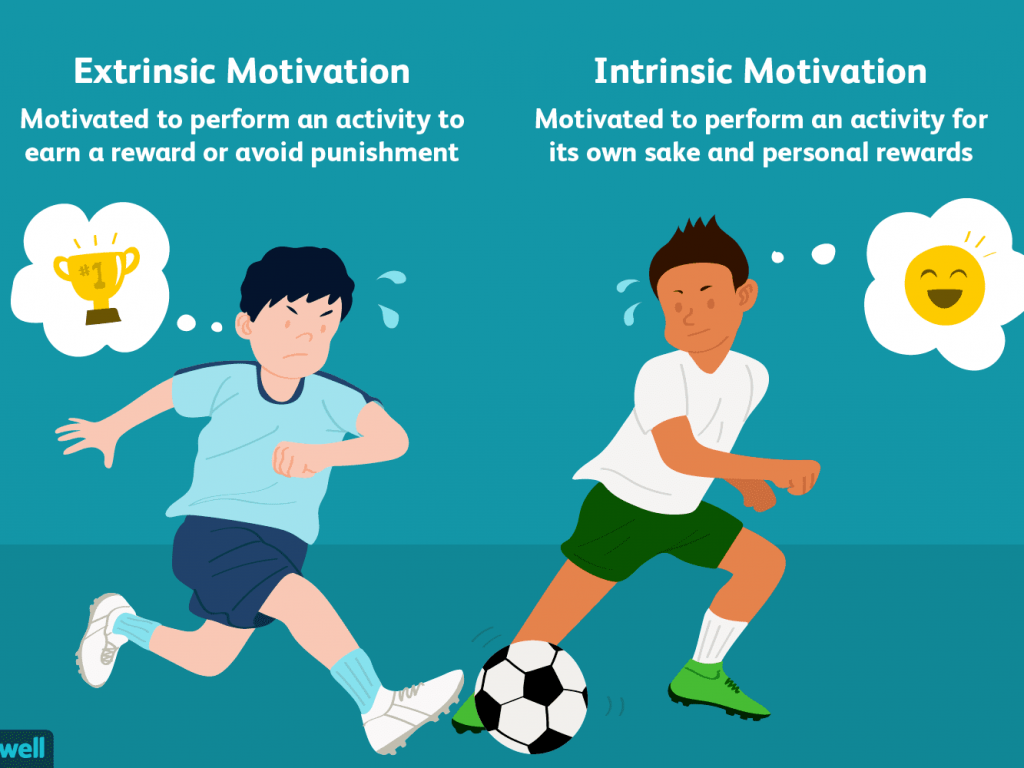
Bulgarian Church of God Membership 20 Years Ago
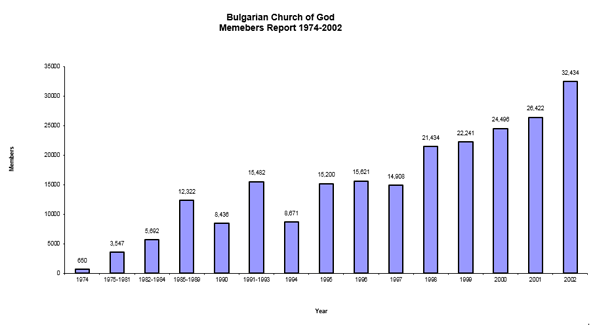
Rewind 20 Years: Services Held
| 1 | 01/02/2002 PM | Central Church of God | Sofia, BG |
| 2 | 01/06/2002 AM | Central Church of God | Sofia, BG |
| 3 | 01/08/2002 PM | Central Church of God | Sofia, BG |
| 4 | 01/09/2002 PM | Central Church of God | Sofia, BG |
| 5 | 01/13/2002 AM | Central Church of God | Sofia, BG |
| 6 | 01/15/2002 PM | Central Church of God | Sofia, BG |
| 7 | 01/16/2002 PM | Central Church of God | Sofia, BG |
| 8 | 01/17/2002 PM | Pravetz Church of God | Pravetz, BG |
| 9 | 01/20/2002 AM | Central Church of God | Sofia, BG |
| 10 | 01/20/2002 PM | Pravetz Church of God | Pravetz, BG |
| 11 | 01/23/2002 PM | Central Church of God | Sofia, BG |
| 12 | 01/24/2002 PM | Pravetz Church of God | Pravetz, BG |
| 13 | 01/25/2002 PM | Bulgarian Evangelical Theological Institute | Sofia, BG |
| 14 | 01/27/2002 PM | Central Church of God | Sofia, BG |
| 15 | 01/29/2002 PM | Central Church of God | Sofia, BG |
| 16 | 01/30/2002 PM | Central Church of God | Sofia, BG |
| 17 | 02/01/2002 PM | Bulgarian Evangelical Theological Institute | Sofia, BG |
| 18 | 02/03/2002 AM | Central Church of God | Sofia, BG |
| 19 | 02/03/2002 PM | Pravetz Church of God | Pravetz, BG |
| 20 | 02/05/2002 PM | Buxton Suburb Home Group | Sofia, BG |
| 21 | 02/06/2002 PM | Central Church of God | Sofia, BG |
| 22 | 02/07/2002 PM | Pravetz Church of God | Pravetz, BG |
| 23 | 02/10/2002 AM | Central Church of God | Sofia, BG |
| 24 | 02/10/2002 PM | Pravetz Church of God | Pravetz, BG |
| 25 | 02/12/2002 PM | Buxton Suburb Home Group | Sofia, BG |
| 26 | 02/13/2002 PM | Central Church of God | Sofia, BG |
| 27 | 02/16/2002 PM | New Central Church of God | Sofia, BG |
| 28 | 02/17/2002 PM | Central Church of God | Sofia, BG |
| 29 | 02/20/2002 PM | Central Church of God | Sofia, BG |
| 30 | 02/21/2002 PM | Pravetz Church of God | Pravetz, BG |
| 31 | 02/24/2002 AM | Central Church of God | Sofia, BG |
| 32 | 02/24/2002 PM | Pravetz Church of God | Pravetz, BG |
| 33 | 02/25/2002 AM | Bulgarian Evangelical Theological Institute | Sofia, BG |
| 34 | 02/25/2002 AM | Bulgarian Evangelical Theological Institute | Sofia, BG |
| 35 | 02/25/2002 AM | Bulgarian Evangelical Theological Institute | Sofia, BG |
| 36 | 02/26/2002 AM | Bulgarian Evangelical Theological Institute | Sofia, BG |
| 37 | 02/26/2002 AM | Bulgarian Evangelical Theological Institute | Sofia, BG |
| 38 | 02/26/2002 AM | Bulgarian Evangelical Theological Institute | Sofia, BG |
| 39 | 02/27/2002 AM | Bulgarian Evangelical Theological Institute | Sofia, BG |
| 40 | 02/27/2002 AM | Bulgarian Evangelical Theological Institute | Sofia, BG |
| 41 | 02/27/2002 AM | Bulgarian Evangelical Theological Institute | Sofia, BG |
| 42 | 02/28/2002 AM | Bulgarian Evangelical Theological Institute | Sofia, BG |
| 43 | 02/28/2002 AM | Bulgarian Evangelical Theological Institute | Sofia, BG |
| 44 | 02/28/2002 AM | Bulgarian Evangelical Theological Institute | Sofia, BG |
| 45 | 02/28/2002 PM | Pravetz Church of God | Pravetz, BG |
| 46 | 03/01/2002 AM | Bulgarian Evangelical Theological Institute | Sofia, BG |
| 47 | 03/01/2002 AM | Bulgarian Evangelical Theological Institute | Sofia, BG |
| 48 | 03/01/2002 AM | Bulgarian Evangelical Theological Institute | Sofia, BG |
| 49 | 03/02/2002 AM | New Central Church of God | Sofia, BG |
| 50 | 03/03/2002 PM | Central Church of God | Sofia, BG |
| 51 | 03/04/2002 AM | Bulgarian Evangelical Theological Institute | Sofia, BG |
| 52 | 03/04/2002 AM | Bulgarian Evangelical Theological Institute | Sofia, BG |
| 53 | 03/05/2002 AM | Bulgarian Evangelical Theological Institute | Sofia, BG |
| 54 | 03/05/2002 AM | Bulgarian Evangelical Theological Institute | Sofia, BG |
| 55 | 03/05/2002 AM | Bulgarian Evangelical Theological Institute | Sofia, BG |
| 56 | 03/06/2002 AM | Bulgarian Evangelical Theological Institute | Sofia, BG |
| 57 | 03/06/2002 AM | Bulgarian Evangelical Theological Institute | Sofia, BG |
| 58 | 03/06/2002 AM | Bulgarian Evangelical Theological Institute | Sofia, BG |
| 59 | 03/06/2002 PM | Central Church of God | Sofia, BG |
| 60 | 03/07/2002 AM | Bulgarian Evangelical Theological Institute | Sofia, BG |
| 61 | 03/07/2002 AM | Bulgarian Evangelical Theological Institute | Sofia, BG |
| 62 | 03/07/2002 AM | Bulgarian Evangelical Theological Institute | Sofia, BG |
| 63 | 03/07/2002 PM | Pravetz Church of God | Pravetz, BG |
| 64 | 03/08/2002 AM | Bulgarian Evangelical Theological Institute | Sofia, BG |
| 65 | 03/08/2002 AM | Bulgarian Evangelical Theological Institute | Sofia, BG |
| 66 | 03/08/2002 AM | Bulgarian Evangelical Theological Institute | Sofia, BG |
| 67 | 03/09/2002 PM | New Central Church of God | Sofia, BG |
| 68 | 03/10/2002 AM | Central Church of God | Sofia, BG |
| 69 | 03/12/2002 AM | Bulgarian Evangelical Theological Institute | Sofia, BG |
| 70 | 03/12/2002 AM | Bulgarian Evangelical Theological Institute | Sofia, BG |
| 71 | 03/12/2002 AM | Bulgarian Evangelical Theological Institute | Sofia, BG |
| 72 | 03/13/2002 AM | Bulgarian Evangelical Theological Institute | Sofia, BG |
| 73 | 03/13/2002 AM | Bulgarian Evangelical Theological Institute | Sofia, BG |
| 74 | 03/13/2002 AM | Bulgarian Evangelical Theological Institute | Sofia, BG |
| 75 | 03/13/2002 PM | Central Church of God | Sofia, BG |
| 76 | 03/14/2002 АM | Bulgarian Evangelical Theological Institute | Sofia, BG |
| 77 | 03/14/2002 АM | Bulgarian Evangelical Theological Institute | Sofia, BG |
| 78 | 03/14/2002 АM | Bulgarian Evangelical Theological Institute | Sofia, BG |
| 79 | 03/14/2002 PM | Pravetz Church of God | Pravetz, BG |
| 80 | 03/15/2002 АM | Bulgarian Evangelical Theological Institute | Sofia, BG |
| 81 | 03/15/2002 АM | Bulgarian Evangelical Theological Institute | Sofia, BG |
| 82 | 03/15/2002 АM | Bulgarian Evangelical Theological Institute | Sofia, BG |
| 83 | 03/16/2002 PM | New Central Church of God | Sofia, BG |
| 84 | 03/17/2002 AM | Central Church of God | Sofia, BG |
| 85 | 03/18/2002 PM | Sugar Factory Church of God | Sofia, BG |
| 86 | 03/20/2002 PM | Central Church of God | Sofia, BG |
| 87 | 03/24/2002 AM | Central Church of God | Sofia, BG |
| 88 | 03/24/2002 PM | Pravetz Church of God | Pravetz, BG |
| 89 | 03/27/2002 PM | Central Church of God | Sofia, BG |
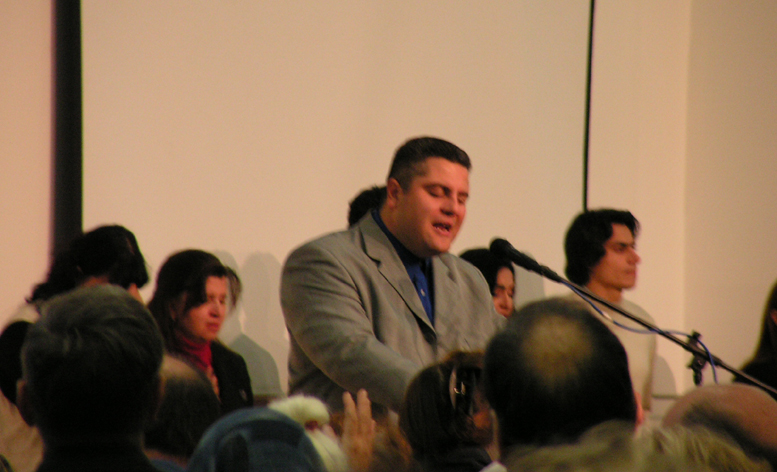
RUSSIA/UKRAINE WAR: ENTER the BIRTH PANGS
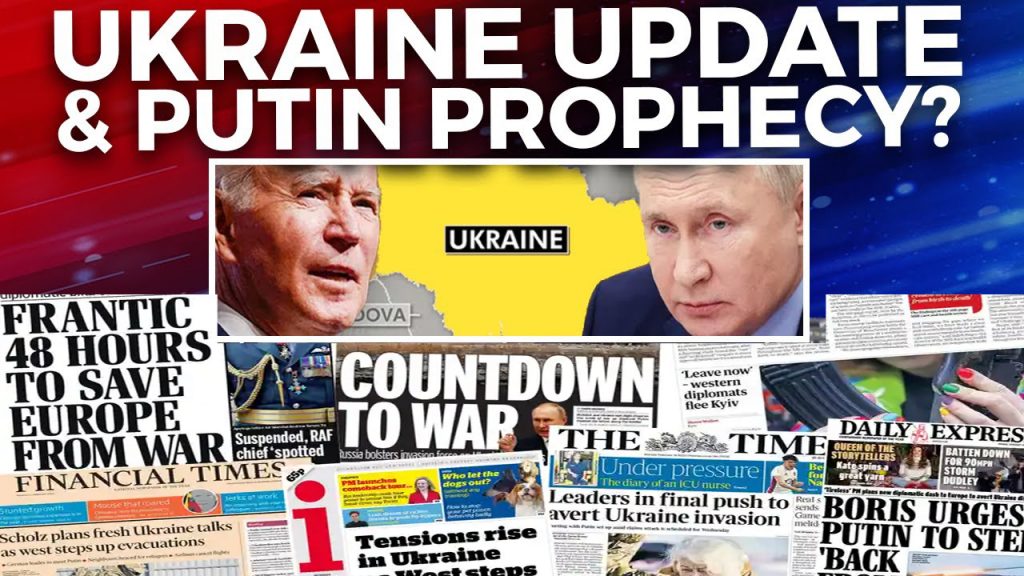
Takeaways from our recent message series on Last Minutes of the Last Days: Last Things before the Rapture
Jesus pointed out that in the last days just before his imminent return there shall be terrible times characterized by wars, rumors of wars, famines, pestilences, earthquakes, these are the beginning of more sorrows to come. We’re all witnessing these things NOW in our generation.
The last minutes of the last days are unfolding before our eyes. After two years of pro-pandemic thinking, just in the past few weeks we’ve been introduced with a series of Eschatological Milestones.
WAR on UKRAINE (Pointing toward Israel): ENTER the BIRTH PANGS
WAR
Nuclear instability not at one, not at two, but at three major nuclear plants in Ukraine
https://www.npr.org/2022/03/11/1085427380/ukraine-nuclear-power-plant-zaporizhzhia
U.S. President Biden visiting Eastern Europe only days after Kamala Harris visited there.
Belarus to get involved https://www.reuters.com/world/ukraine-says-russian-aircraft-fired-belarus-ukrainian-air-space-2022-03-11/
Iran attacks American consulate in Iraq AGAIN https://abcnews.go.com/International/wireStory/missiles-target-us-consulate-north-iraq-casualties-83412862
China warns of ‘worst consequences’ for any country that supports Taiwan militarily
https://www.foxnews.com/world/china-worst-consequences-taiwan-military-support-warning
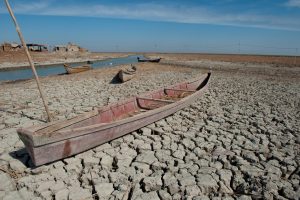
NATURE
Turkey is ready to flood a second channel from the Black Sea to the Mediterranean. Dries up the Euphrates and Tiger rivers (as in Revelation) https://www.youtube.com/watch?v=RxrgKfRIdW0
Earthquakes in Utah (of ALL places in the world)
ECONOMY
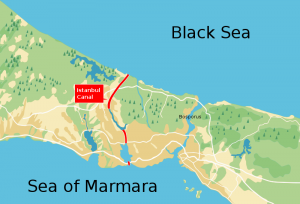
Digital Dollar as last stop before setting the financial system of the Apocalypse
https://www.cnn.com/2022/03/11/tech/us-digital-dollar-cbdc/index.html
Saudi Arabia Considers Accepting Yuan Instead of Dollars for Chinese Oil Sales
BULGARIA
Bulgarian Army now drafting while the Bulgarian government suddenly re-examines our network of bomb shelters long forgotten from the days of the Cold War.
US defense chief’s visit to Bulgaria ‘extremely significant’
Bulgarian ex-Prime Minister and Cabinet members in police custody https://www.novinite.com/articles/214334/Bulgarian+Former+PM+Boyko+Borissov+Spent+the+Night+in+Police+Custody?fbclid=IwAR2Pu1cHhQDhThna3Ye0vajQMHiouZ2v7bx6r7za-5CAgpGkVGZIn6c7Cnk
Brink of NUCLEAR war: Ex-RAF chief warns the world could be only ‘a few steps’ from atomic weapons being used as increasingly desperate Putin struggles to win his war in Ukraine
- Air Marshal Edward Stringer says nuclear war is ‘no longer unthinkable’
- He claims atomic weapons ‘could’ be used as Russia’s invasion continues
- EX-RAF Assistant Chief of Air Staff says it could be ‘only a few steps away’
Need more be said that the time to prepare for Christ’s imminent return is NOW?
“NOW learn a parable of the fig tree: (Israel re-birthed as a nation May 14, 1948) When his branch is yet tender, and puts forth leaves, ye know that summer is nigh: So likewise ye, when ye shall see all these things, know that it is near, even at the doors. Verily I say unto you, THIS GENERATION shall not pass, till ALL these things be fulfilled.” Matt 24:32-34
- It’s been 6,000 years, or 120 jubilees, since the Biblical creation (Gen. 6:3; 2 Pet. 3:8).
- It’s been 70-plus years, the span of a Biblical generation, since the “fig tree,” the Nation of Israel was reestablished and began putting forth leaves (Matt. 24:32-34; Ps. 90:10).
- The stage is set for the global Ezekiel 38 war-conflict, the emergence of the 10-nation beast as a governing system, and the global economic collapse told by John in the Revelation (Rev. 6:6; 13:7; 17:12-14).
- Multiple peace deals between Israel and its Arab-Muslim neighbors are on the table or in the works (1 Thess. 5:3).
ALL that remains to happen before the Church is SUDDENLY COUGHT AWAY is the sound of the TRUMP of GOD (not angelic trumpet, not the 6th or the 7th trumpet but the last trumpet, which belongs only to GOD)
When that awesome trumpet sounds, there will be only TWO KINDS OF PEOPLE on earth: those ESCAPING judgment and those being LEFT BEHIND to face it. (Luke 21:34-36). The stage is set. The foreshadows (signs) of Daniel’s 70th Week are too evident to ignore; the final 7 years can’t begin as long as the Church is still on this earth as the Restrainer (2 Thess.2:6)
“For God hath NOT APPOINTED US TO WRATH, but to obtain salvation by our Lord Jesus Christ.” 1Thessalonians 5:9
To be part of the escaping group, one must be saved and in a real relationship with Jesus. If you’re unsure where you stand with God, call on Him now, confess Him as Your Lord and Savior and turn away from sin. Time is running out…
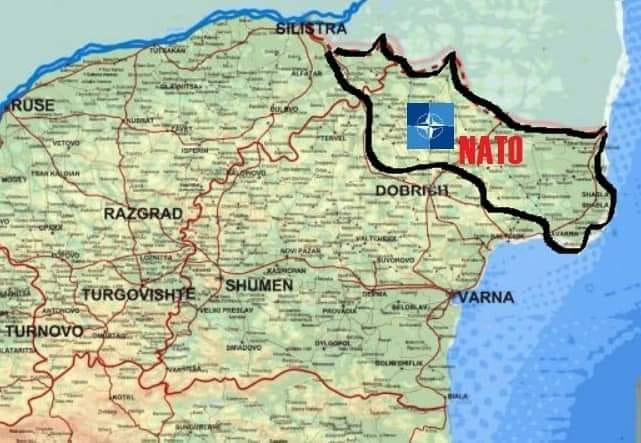
Refugee Week at LEE UNIVERSITY
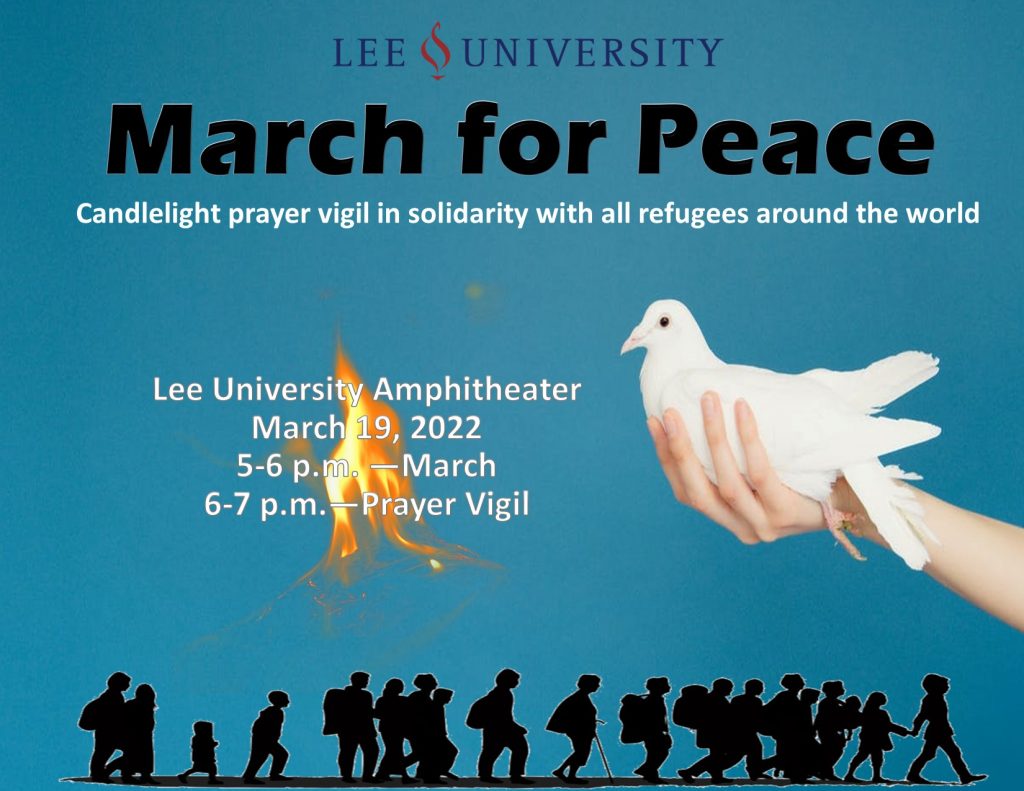
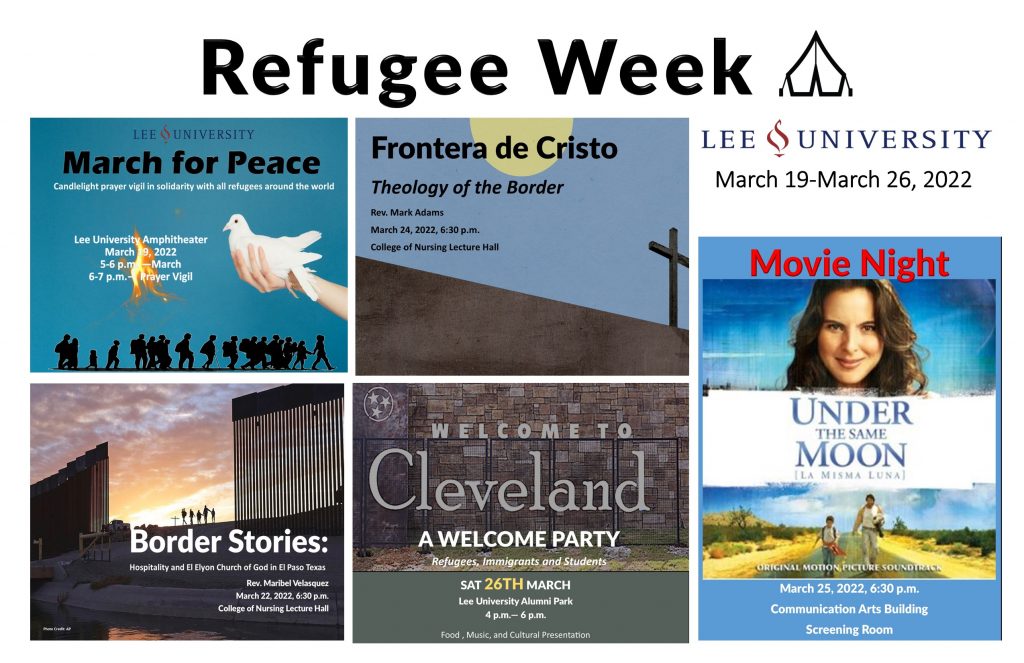
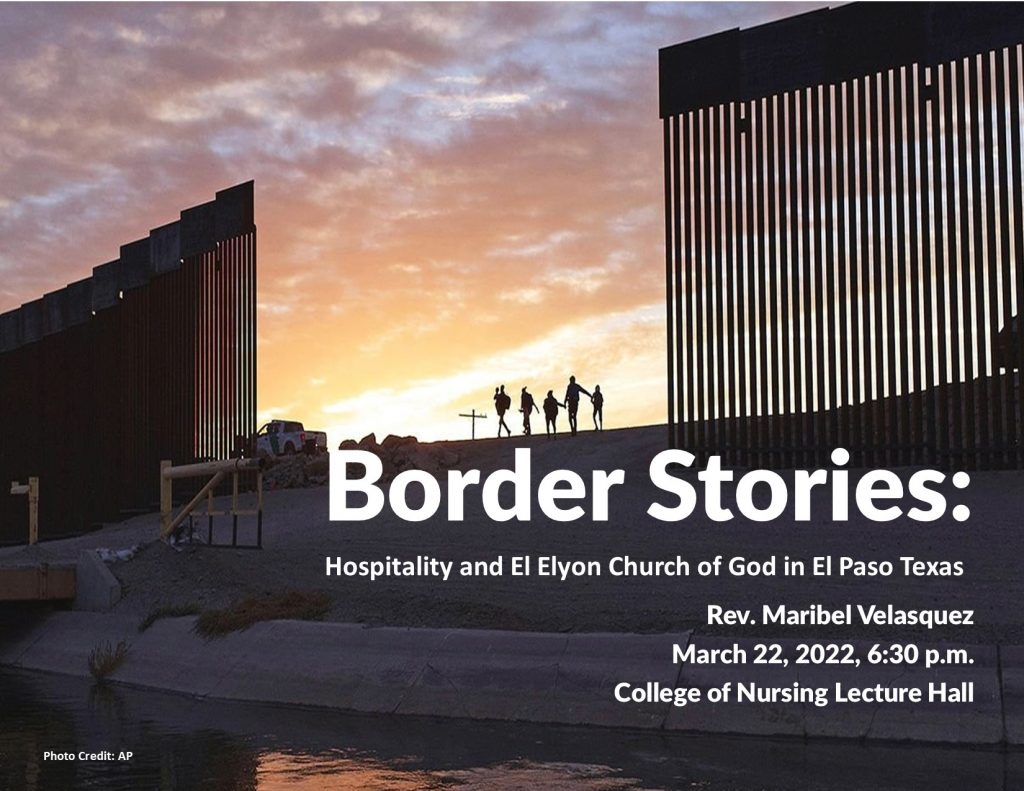
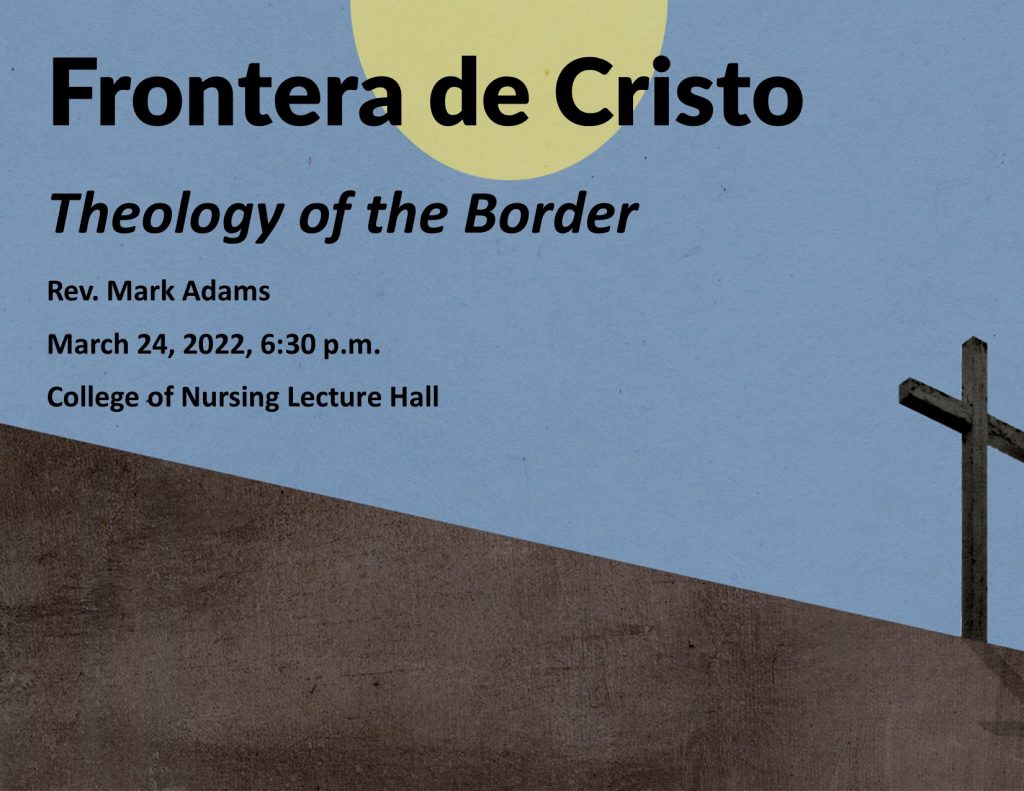
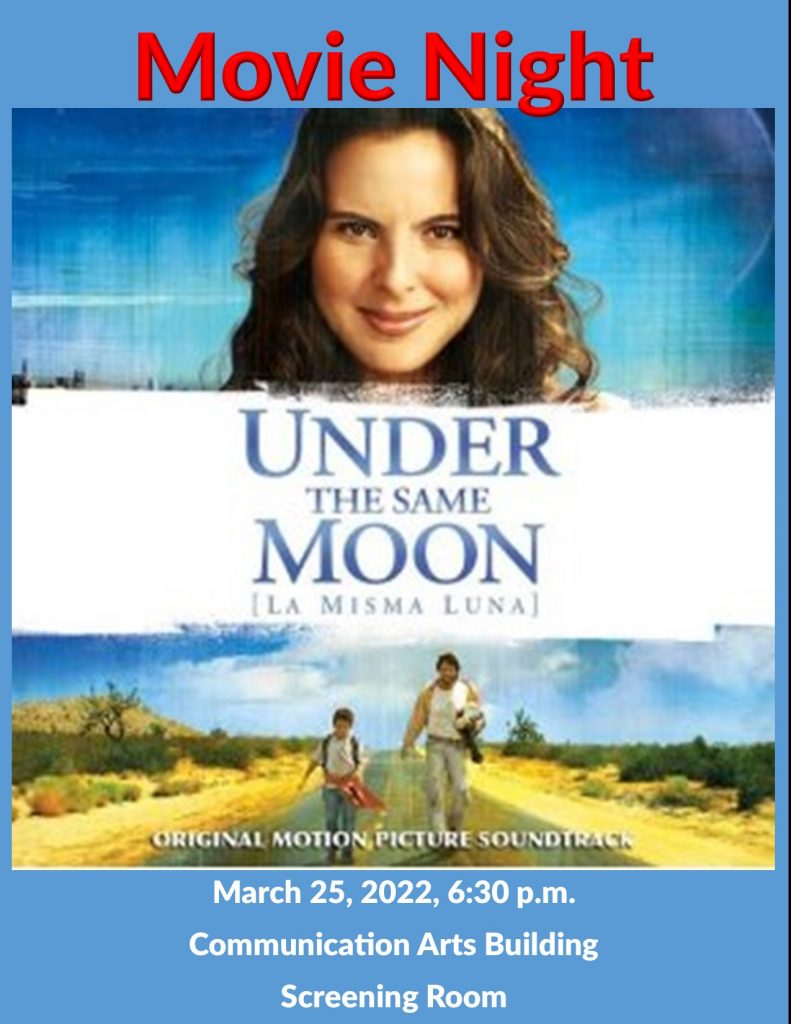
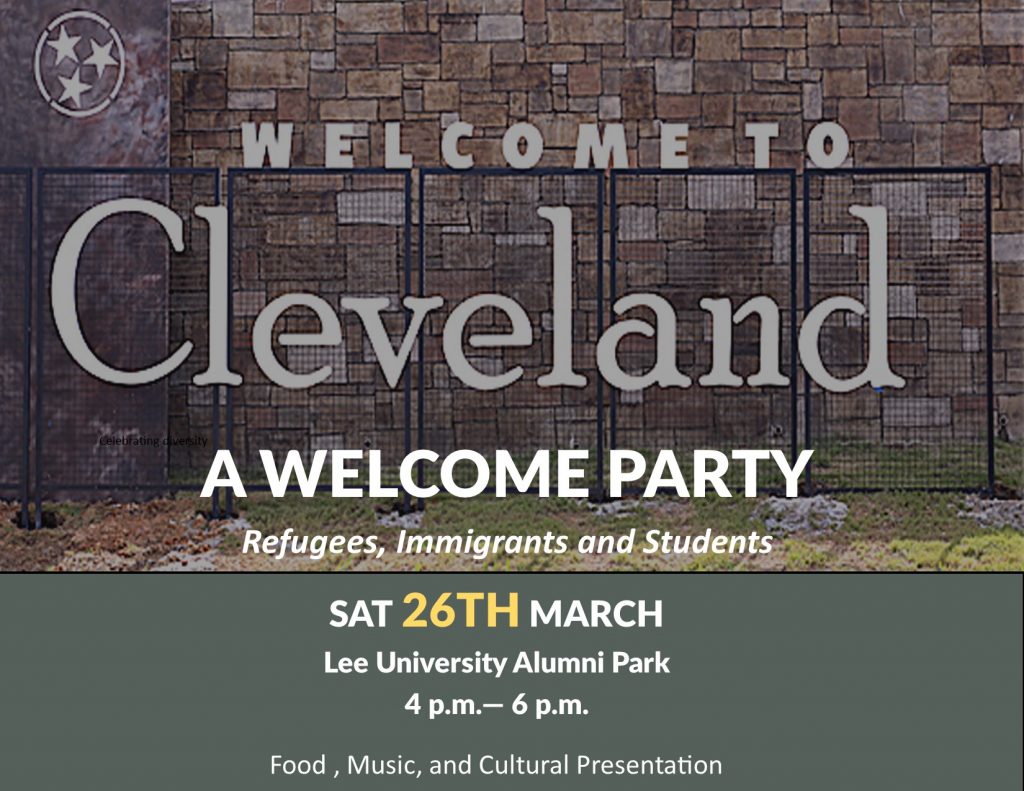
Eastern Pneumotology
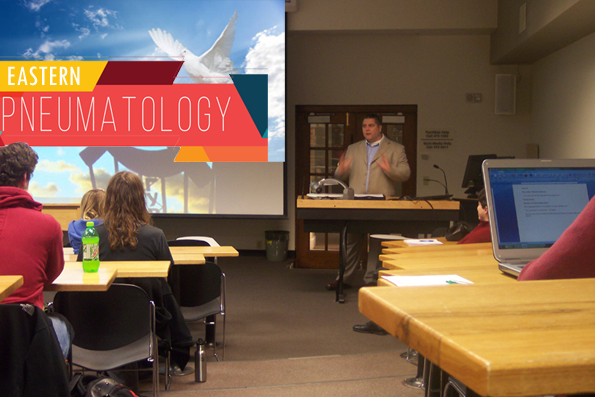
Dony K. Donev, D.Min.:Eastern Pneumotology
Eastern Orthodoxy can be expressed in one word: theism. The purpose and meaning of life is to become more like God. Deification is pursued by all means of human existence. This quest for divine likeness often includes the typical for the Eastern Church, speculation on the divinity and humanity of Christ, traditions on the doctrine of the Trinity and non-traditional mystical experiences. They appear in the context of both physical and spiritual characteristics in individual and corporate ecclesiastical environment. The role of the Spirit in the process of deification is threefold and involves: creation, re-creation and theism.
Eastern Pneumotology follows the graduate process of theism development. The Spirit is involved in the original creation of the world as well as the new-birth experience. His work however, does not end there, but continues throughout the process of personal deification of the believer.[1]
The emphasis of Eastern pneumatological deification is the relationship between the Christian individual and the Holy Spirit as agents of the visible and invisible worlds. This association is reached through a continuing process of deep-devotional prayer, severe fasting and self-denying asceticism, resulting in an enlightening mystical experience, accompanied by the individual’s denial of self and world and faithful dedication to God.
The variety of spiritual experiences in the deification process can be categorized in three main groups. The first category focuses on the “sensory perception” of the Spirit. This includes experiencing the Spirit as vision of bright light, extraordinary feeling of “untold ecstasy” and even a sweet smell.[2] This category includes experiences through a long stretch of time from Pseudo-Macarius (ca. 300–ca. 390) to Symeon the New Theologian (949-1022). The second category argues that the Spirit can be experienced only intellectually in a high level of understanding and knowledge that is not limited by the human mind’s perceptions of reality. This experience is defined and defended by Evagrius Ponticus.[3] Maximus developed the third experiential category, the Confessor (ca. 580-662). It claims that God, as light, can be experienced only in the uttermost darkness where all other created light disappears and only God’s light remains true.[4]
Prayer is a central and essential part of the above experiences. Without prayer one is not prepared to experience the Spirit, neither is he ready to understand and recognize the power and existence of the divine. Gregory Palamas (XIV c.) further claims that such understanding and recognition leads to an experience, which “transfigures the whole human body after the pattern of Christ’s own transfiguration.”[5] Supernatural miracles, spiritual gifts, knowledge and wisdom are often the reflection of such an experience in one’s life. Such an experience of deep emotional state in a mystical context evolves into a total dependence on divine direction, as a replica of Christ’s obedience.
[1] Gregory of Nyssa, Commentary on Canticles, in Herbert Musurillo trans., From Glory to Glory: Texts from Gregory of Nyssa’s Mystical Writings (New York: Charles Scribner’s Sons, 1961), 190.
[2] John Cassian, Collationes 4.5, PL 49:col. 589.
[3] Alphonsi Mangana, Woodbrooke Studies 7, Early Christian Mystics (Cambridge: W. Huffer and Sons, 1934), 71.
[4] Stanley M. Burgess, The Holy Spirit: Eastern Christian Tradition (Peabody: Hendrickson Publishers Inc., 1989), 4.
[5] Burgess, 5.


